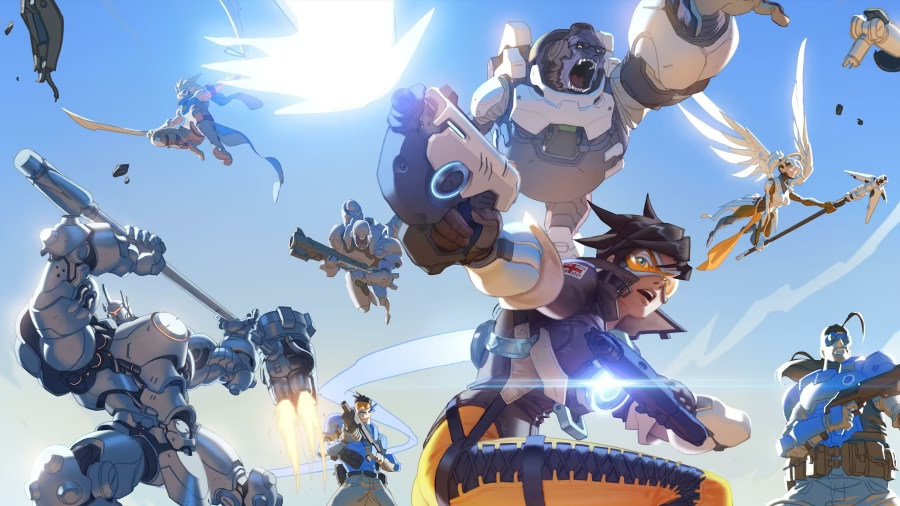Blizzard Overwatch 2: Tackling Toxicity for a Better OW 2 Experience
Highlights
- Overwatch 2 players are facing a troubling rise in toxic behavior, but there are effective solutions to combat this negativity and restore the game's harmonious community.
- Promoting effective communication and teamwork, improving reporting and moderation systems, and fostering education and awareness are key steps in reducing toxicity and creating a positive gaming experience.
- By actively intervening as developers and taking a proactive stance against toxic behavior, Overwatch 2 can set a precedent for a community that values respect and sportsmanship.
Overwatch 2 players have been facing a troubling rise in toxic behavior during matches. The once harmonious community has been tainted by insults, negativity, and blame-shifting, hindering the overall gaming experience. But fear not, for there are several effective solutions that can be implemented to combat this toxicity and restore the game to its former glory.

First and foremost, promoting effective communication and teamwork is key. Encourage players to utilize voice chat or the in-game communication wheel to coordinate strategies and share vital information. By emphasizing the importance of constructive feedback and respectful communication, players will understand that insults and negativity only serve to hinder team performance. Encourage players to call out positive plays, commend good teamwork, and offer helpful suggestions instead of criticizing or blaming teammates. Fostering a supportive and collaborative environment will enable players to work together towards victory, reducing toxic behavior in the process.
Another crucial aspect is the improvement of reporting and moderation systems within Overwatch 2. Players should be encouraged to report instances of toxicity, harassment, or abusive language, with the assurance that their reports will be taken seriously. Implementing a robust moderation system that can swiftly identify and penalize toxic players, such as issuing temporary or permanent bans, is essential. Regularly reviewing and updating the reporting system will ensure its effectiveness in combating new forms of toxicity. By actively addressing toxic players, the community can be cleansed of their negative influence, creating a more enjoyable experience for all.
Education and awareness campaigns can also make a profound impact on combating toxic behavior. Providing resources such as guides and videos that highlight the consequences of toxic behavior and the benefits of positive sportsmanship is crucial. Encouraging players to reflect on their own behavior and consider the impact of their words and actions is essential in fostering a culture of respect and empathy. Organizing community events or tournaments that focus on promoting a positive and inclusive gaming environment can further reinforce these values. By actively engaging players in these campaigns, they can become more mindful of their behavior and actively work towards reducing toxicity in the game.
Lastly, it is imperative for the developers of Overwatch 2 to actively intervene and address toxic behavior. By continuously monitoring player feedback and concerns regarding toxicity, they can implement necessary changes. Stricter penalties for repeat offenders and systems that reward positive behavior should be considered. Regular communication with the community about efforts being made to combat toxicity and providing updates on progress is vital. Taking a proactive stance against toxic behavior, the developers can set a precedent and create a community that values respect and sportsmanship.
In conclusion, while toxic behavior in Overwatch 2 has become a pressing issue, there are effective measures that can be taken to combat it. By promoting effective communication and teamwork, improving reporting and moderation systems, fostering education and awareness, and actively intervening as developers, the community can work together to create a positive and enjoyable gaming experience. Let us unite and restore Overwatch 2 to its former glory, where camaraderie and sportsmanship prevail over toxicity.
Related Articles
Overwatch 2: Craving a Change? Exploring Potential Solutions to the Counterpicking Conundrum
Overwatch 2 Suspensions: Unraveling the Mysteries and Avoiding the Banhammer
Loverwatch: Craving the Coveted Icons and Titles? Here's How to Satisfy Your OW 2 Desires!
Overwatch Download Dilemma: Why is OW 2 Making You Download 30+ GB on Steam?
How to Merge Your OW 2 Accounts: A Guide to Patience, Support, and the Unfortunate Reality


